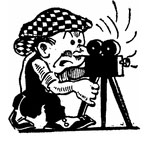
The Hollywood Scandal Behind the Clerical Scandal
STATE JUDICIAL SYSTEMS AND MEDIA HOLD A DOUBLE STANDARD
Joshua Hren penned a compelling, Dante-haunted piece (“Ressentiment or Rectification?: Dante’s Divine Comedy & the Viganò Testimony,” Nov.), arguing in defense of Archbishop Carlo Maria Viganò’s open letter (Aug. 22) that details Pope Francis’s granting of de facto free reign to disgraced prelate Theodore Cardinal McCarrick. As Hren argues, Viganò has been vilified as a resentful and power-hungry cleric seeking to get back at the humble and well-meaning Pope. Hren’s central thesis is that, regardless of Viganò’s motives, his accusations should be weighed on their own merits.
Hren is entirely correct. There is, however, a deeper question behind not only Viganò’s motives but the reason why the McCarrick scandal broke when it did. It seems strange that McCarrick, a serial molester of young men, could survive for so long, undetected, hobnobbing with the elite at places like the World Economic Forum in Davos, Switzerland, and even serving as a visitor to Iran, China, and Africa on behalf of the Obama administration. Are we expected to believe that the rigorous United Nations and U.S. State Department background checks to which McCarrick would have been subjected did not uncover any of his many misdeeds?
Furthermore, if His Eminence’s misdeeds were known, why were they made public only in June 2017?
Is it possible that they were purposefully released at that time to hide another scandal that was brewing in plain sight? What is this other scandal?
To answer this question, we have to take a trip down memory lane — not to the cavernous realm of Dante’s Inferno but to another hellscape: Southern California of the 1980s.
You May Also Enjoy
Other inmates were shocked that pro-life rescuers got two to five years in prison for doing a sit-in, handing out brochures, livestreaming a sit-in, or planning a sit-in.
Our culture has developed a real phobia about the simple word, "man."
Nobody really contests, deep down, that TV probably isn’t very good for us. How can…

